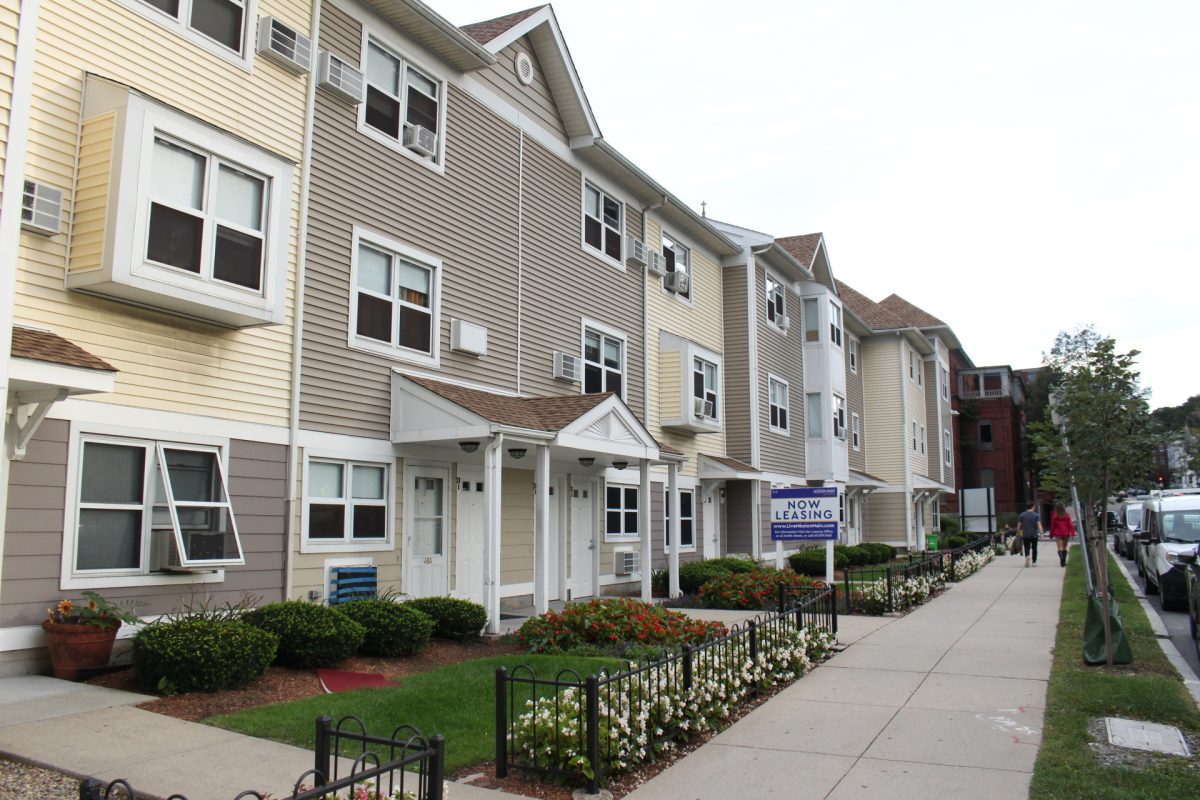By Stephanie Eisemann, News Correspondent
Part-time professors across the city are looking to unionize in order to protect the labor and services they provide for their universities. At Northeastern, adjunct professors are fighting for wages and benefits in a movement called Adjunct Action sponsored by the Service Employees International Union (SEIU).
Adjunct professors are hired on a part-time, contractual basis rather than into a tenured position, and are not usually eligible for the same health plans and retirement benefits as full-time faculty.
Northeastern’s Progressive Student Alliance (PSA), a social justice group, has begun a campaign in support of the unionization of Northeastern’s adjunct professors.
Tara Blumstein, a fourth year political science and international affairs dual major and PSA president, emphasized the need to show the adjuncts a great deal of student support.
“[PSA] started planning in August,” Blumstein said. “[We are] mostly there to make sure that the administration is keeping themselves in check, they’re not creating an unsafe or unwelcoming work environment for the adjuncts while they’re unionizing. We are urging them to stay neutral in the unionization fight.”
Blumstein explained what the result of that unionization fight would be if it were voted into effect.
“It would mean that they have legal representation from a local union. They would be able to negotiate a fair contract for fair wages and fair benefits,” Blumstein said. “They would be able to work more closely with their fellow adjunct faculty members and really have a leg to stand on when speaking with the administration of our school. It would mean that they have more job security and protection.”
Northeastern has published Provost Stephen Director’s faculty letter from Aug. 22, regarding the unionization movement, on their website.
“Ultimately, the decision about whether to support SEIU or not is yours,” Director said in the letter. “We do want to emphasize that the issue of union representation is of critical importance to every faculty member, including you, as well as to the university as a whole. Therefore, we urge you not to remain uninvolved. However you may feel about this issue, please make your voice count.”
Blumstein stated that NU has not remained neutral.
“Right now they are engaging in union busting,” Blumstein said.
This phrase refers to the attempt to dissuade unions from actualizing.
“They are basically trying to create a situation where some adjuncts would be discouraged … either from fear that they’ll lose their job or from fear that the union would not be a good thing for them, which usually is not the case with this class of workers,” Blumstein said.
However, she is unconvinced that these attempts are affecting the movement.
“We haven’t heard reports of anyone being, like, so uncomfortable that they’re not going to work or what have you, so that’s really good,” Blumstein said. “I think it just speaks to their strength.”
Currently, there are 328 Northeastern faculty members not on the tenured track, according to educationnews.org.
“I think people deserve job security,” Jessica Nelson, a part-time lecturer in the English department, said.
She feels that unionization would encourage the university to hire full-time lecturers, and that having faculty who know they have a job would also be beneficial for the students.
Graduate student and summer teacher in the English Department David Ober said that he also feels these issues affect morale, and that the unionization would give eligible faculty members positive benefits.
“The ability to negotiate, just, basic things like wages and healthcare. I mean I think those are the two big ones,” Ober said.
The Northeastern Faculty Handbook currently lists, among its non-voting faculty, all temporary faculty, lecturers, adjunct professors, clinical instructors, clinical assistant professors and graduate students who hold regular appointments as stipended graduate assistants.
Michael Dukakis, distinguished professor in the political science department, said that he “thinks unions are a good thing,” and supports the movement to mobilize adjuncts on campus.
“If that means that we can’t do certain other things because it’s going to cost a little more, well, there’s nothing more important than making sure the people that work for you are fairly compensated and feel good about what they’re doing,” Dukakis said. “That’s at the heart of what makes a place a successful place.”
Blumstein concurred, advocating that the university focus more of its resources on the part-time educators.
“Northeastern is prioritizing the wrong things,” Blumstein said. “The adjuncts are getting left behind.”
Currently, there are approximately 1,400 adjuncts on campus and the average salary per class is $2,100, which averages to $525 per month for a professor who only oversees one class per semester, according to Blumstein. Additionally, adjuncts can get as little as a day’s notice as to whether or not they will be teaching a certain course for the semester.
“We just feel that people with Ph.Ds shouldn’t be making poverty wages,” Blumstein said.
The federal poverty level for 2012 was set at $930.83 per month for a family of one, according to a report by Georgetown University.
Nearby, Tufts University has officially passed a motion to unionize their part-time professors and have formed an organization in the SEIU.
“Throughout this election process, the Tufts administration said that we supported the right of our part-time lecturers in the School of Arts and Sciences to decide for themselves whether or not they wanted to unionize,” Kimberly Thurler, Director of Public Relations at Tufts University, said in a statement. “We also made it clear that Tufts would do its part to try to foster a good working relationship with the SEIU, should it succeed in its effort to organize these part-time lecturers. Moving forward, we hope to work productively with the SEIU as the collective bargaining process begins.”
Bentley University was scheduled to count the votes of those eligible to unionize Oct. 4, but was unable to proceed due to the continuing government shutdown.













